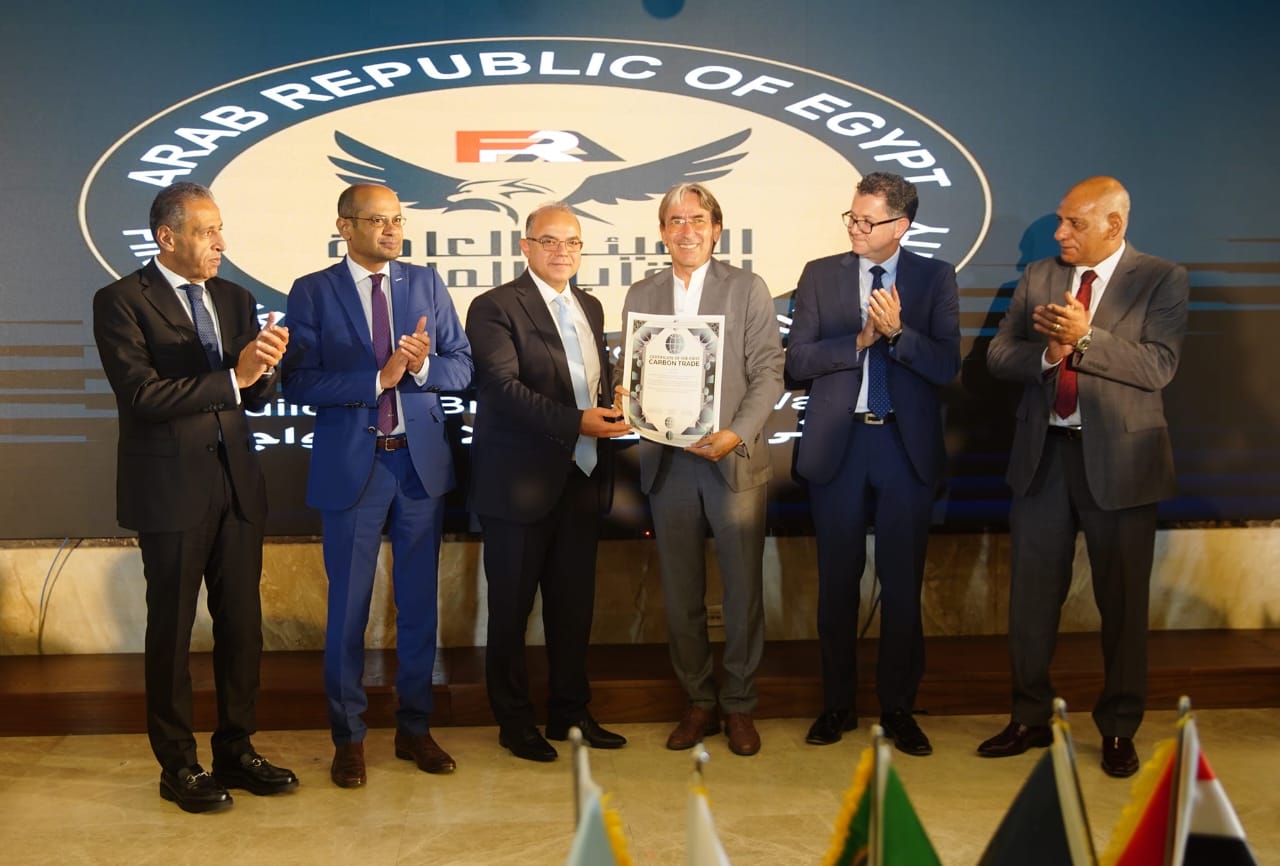Food & Climate
The Egyptian Insurance Federation has successfully acquired 350 carbon emission reduction certificates from the Minya Group Project, which is part of the Egyptian Biodynamic Association’s initiatives.
This transaction was facilitated through a “pre-arranged deals” mechanism by Beltone Financial Brokerage, licensed by the Financial Regulatory Authority (FRA) to handle voluntary carbon reduction certificates, according a press release that “Food & Climate” platform received today, Monday, 2 December 2024.
Founded 30 years ago, the Egyptian Biodynamic Association (EBDA) is an independent association that developed the “Economy of Love” standard, highly inspired by the SEKEM company vision.
The EBDA is focused on scaling biodynamic agriculture, promoting a holistic transformation of farming communities.
Through the “Economy of Love” Standard, the EBDA is enabling farmers to transition from conventional to a more profitable biodynamic, regenerative farming model while supporting community development.
To date, it has supported over 15,000 farmers and converted over 47,000 acres of land.
Egyptian Biodynamic Association
Helmy Abouleish, Chairman of the Egyptian Biodynamic Association, stated that the “Economy of Love” standard offers high-quality carbon credits that extend beyond mere Carbon sequestration in soil.
This standard delivers a comprehensive range of benefits addressing climate change, biodiversity, and individual health and safety.
By promoting biodynamic agricultural practices, it fosters healthy ecosystems, improves soil and personal health, enhances food and water security, and elevates social and economic conditions.
The Economy of Love Standard empowers smallholder farmers by providing customized training, essential resources, and financial incentives.
This enables them to adopt sustainable farming practices that are both climate-friendly and economically viable. Farmers involved in these initiatives gain access to sustainable markets, leading to improved financial stability and contributing to global sustainability efforts. By utilizing the Economy of Love carbon credits, organizations and individuals can enhance their climate action initiatives.
This approach goes beyond traditional carbon offsetting by actively supporting community empowerment and fostering a sustainable future. The Economy of Love Standard is thus a significant player in the global fight against climate change.
Abouleish remarked: “This initiative marks a milestone towards a greener future and underscores Egypt’s commitment to addressing climate change while promoting sustainable economic growth.”

The recently launched Voluntary Carbon Market in Egypt offers organizations a chance to reduce their environmental impact, ensuring that each action contributes to both local and global sustainability. This transaction showcases Egypt’s advancements in sustainable development and its proactive role in combating climate change through the Economy of Love’s carbon certificates.
This initiative supports regenerative agriculture and community climate action, with the Egyptian Insurance Federation exemplifying how events can align with environmental and social responsibility.
Egypt’s Voluntary Carbon Market
With growing interest from both local and international stakeholders, Egypt’s Voluntary Carbon Market is poised for significant expansion. By fostering collaboration among government, private sector, and civil society, this market holds great potential for delivering environmental, social, cultural, and economic benefits, positioning Egypt as a model for other nations striving for development alongside sustainability, said Abouleish.
Alaa Al-Zuhairi, Chairman of the Egyptian Insurance Federation, emphasized the significance of purchasing voluntary carbon certificates, stating that it positions the Sharm El-Sheikh Insurance Conference among sustainable conferences, expressing the goal of achieving net zero emissions at the conference.
In August 2024, the FRA launched Egypt’s first regulated voluntary carbon market, which allows for the registration and trading of carbon emission reduction projects. This initiative was introduced in collaboration with the Ministry of Environment and involved six ministers.
The FRA’s actions align with commitments made during the COP 27 Climate Conference to develop voluntary carbon markets.
Key developments in Egypt’s carbon market include the Prime Minister’s decision No. 4664 of 2022, which recognized carbon emission reduction certificates as financial instruments.

Additionally, a supervisory committee has been formed to oversee carbon emission reduction units, alongside regulations for registering verification and certification bodies for carbon projects. Furthermore, rules have been established for issuing and trading carbon certificates on Egyptian stock exchanges. Collectively, these measures aim to enhance market stability and support Egypt’s sustainability efforts while facilitating a transparent and effective carbon trading environment.

